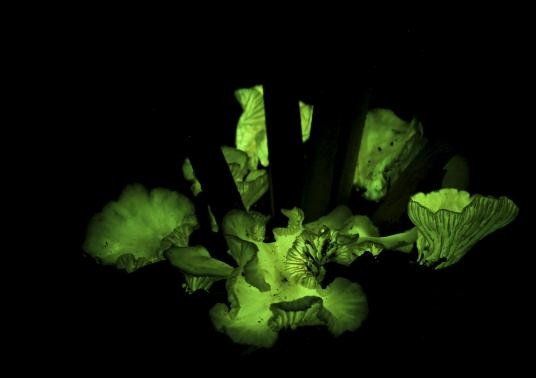Scientists found out how glowing mushrooms are lighting up.
The bioluminescent mushrooms are scattered throughout the world's forests. One special yellow mushroom named as "flor de coco," which sprouts in the Brazilian coconut forests, have been studied by the researchers.
They found out that forest creatures, especially insects, were attracted to the mushroom light at night. The insects then later spread the fungi's spores around the forest, widening its reach and popping more glowing mushrooms.
"The answer appears to be that fungi make light so they are noticed by insects who can help the fungus colonize new habitats," said Cassius Stevani, a biochemist at the Instituto de Química-Universidade de São Paulo in Brazil.
The researchers initially tested their theory by placing plastic mushroom with green LEDs on some trees for over five nights. They took note of the number of insect visitors and discovered that those who mimicked the mushroom light had attracted more insects, according to Science Mag.
Stevani said that the question of why mushrooms glow has been asked over 2,000 years ago by Greek philosopher Aristotle.
Jay Dunlap, a molecular biologist and geneticist from Dartmouth College's Geisel School of Medicine, said that bioluminescence is not exclusive to glowing mushrooms. Other species such as fish, insects and bacteria also glow due to evolution, according to Reuters India.
Out of the 100,000 discovered species of fungus, 71 have bioluminescent properties. Dunlap said that many of the mushrooms glow to spread their fungal spores and replicate throughout the forest.
The study was published in the Current Biology journal.



























